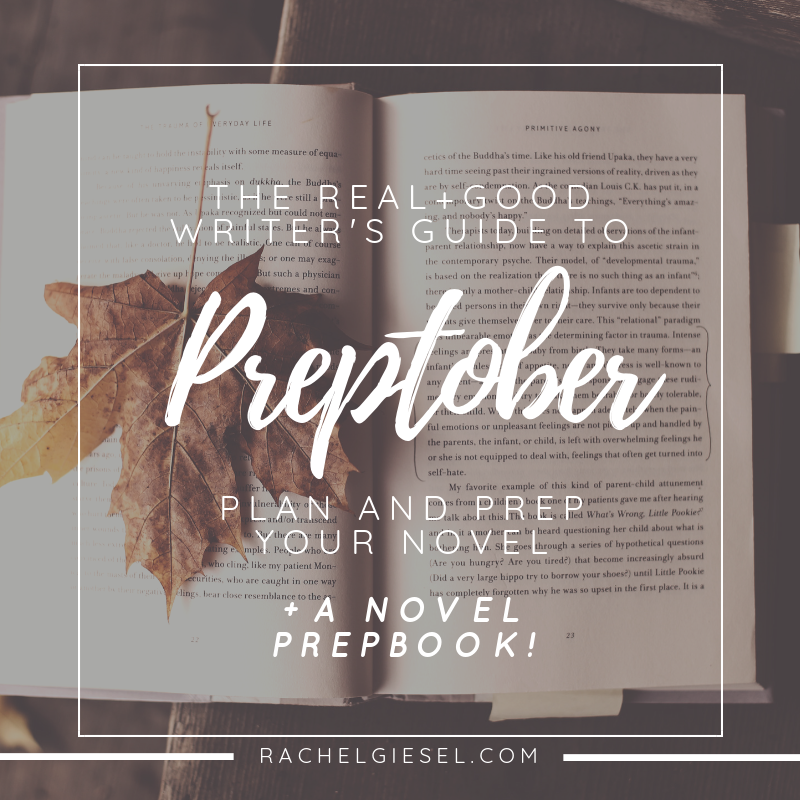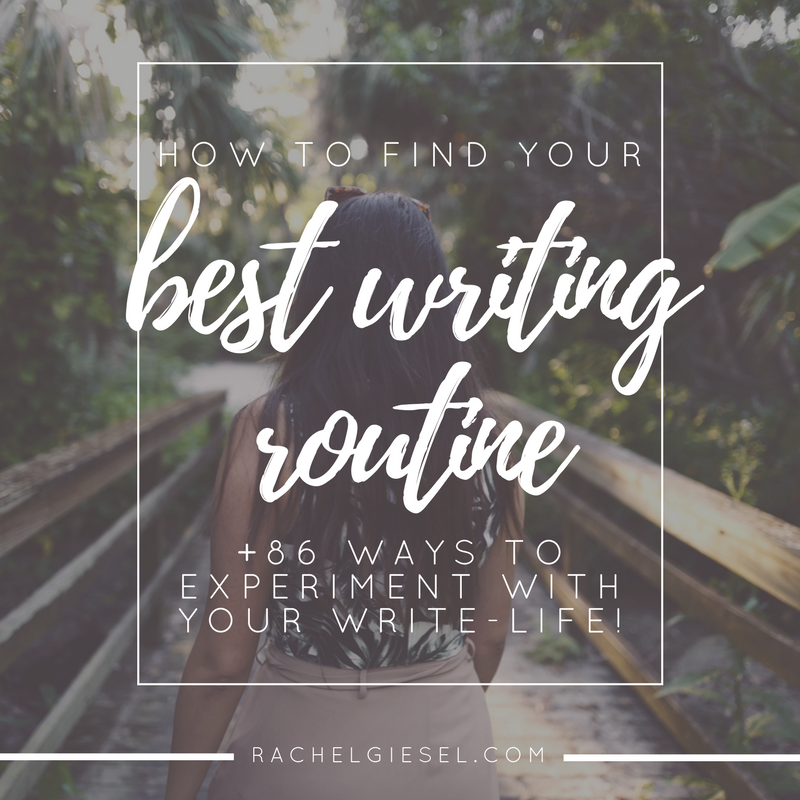Lovely writer friend, do you write short stories?
If you want to be a novelist, a memoirist, or any kind of writer, you have to understand how to tell a story. That means you have to know about ALL the craft elements—plot, characters, voice, themes, setting—everything! And short stories are an AMAZING place to learn all of that in a short amount of time.
5 Major Reasons You Should Be Writing Short Stories:
1 | They're a GREAT place to start with fiction and other storytelling forms
The short story is the primary teaching vehicle for fiction in schools and universities around the world. Why? Because it packs ALL these elements of fiction into one concise, little story. This makes it easier to see big craft concepts in a short amount of time.
Which makes it easier for you to learn these concepts.
And quicker for you to learn these concepts.
This is the quick and easy way to learn how to write fiction.
Think about it. If you only focus on studying novels, you're going to spend SO MUCH MORE TIME writing and reading to understand how to grasp concepts.
Yes, novels are important.
And yes, novels often sell better than short stories.
And yes, if you want to write novels, you need to read (and write) novels.
But the short form teaches you the necessary skills to take back to your big project with confidence. Short stories allow you to experiment, to practice, to learn. When you hone your skills again and again with short stories, you'll be a total badass when you approach your novel.
Instead of approaching a novel or another big writing project immediately immediately (which can be intimidating and a lot of work), short stories allow you to learn about every craft concept quickly. You'll discover very quickly whether you actually can craft a compelling character or not in just a few pages. You'll realize very quickly if your plot isn't going anywhere. And if it isn't as awesome as you thought, you can quickly see your error, fix it, and move forward. But in a novel, it could take you over 150 pages of writing to realize this.
Short stories allow you to hone your craft before you approach a bigger book-length work.
2 | They allow you to experiment
Sometimes you want to take risks in your writing. Sometimes you want to try something new and different than you've done before.
But do you want to test out something you've never tried before on a whole novel? Probs not.
Short stories allow you the freedom to flex your creative muscle and test out different options like writing in second-person, or writing from a minimalist/maximalist style, or writing a character totally different from yourself, or testing out a new genre.
And testing out all these new experimental things help you grow SO MUCH as a writer. You strengthen your writing skills not by doing the same exact thing again and again, but by experimenting, testing, challenging yourself. Short stories allow you to do that without the pressure of commitment or time.
3 | Short stories force you to focus on brevity and importance
In a book-length work, you have more time to explore. You can spend five pages detailing your character's bedroom or take a whole chapter and explore this secondary character's mother's background. You can roam wide and think deeply because of the nature of form.
This is great if you love world-building, character-development, and truly fleshing out the world of your story. But it can go very wrong if you're not intentional and meaningful with what you choose to develop. Knowing what to include and what to leave out in your story is a tough task. You don't want to have wasted pages that don't add up to something. A novel makes it even more difficult to know what to keep and what to cut because you've created a big world that needs exploring.
Short stories, by their nature, ask you to make those choices. You have less time on the page to convey what you need to convey, and so every detail, every word counts. Short stories teach you tell your story succinctly and powerfully by using the best techniques for that point in time.
“Short stories bring more pressure, because like poets, each paragraph, sentence, and word is more important than they would be inside a large novel. Short stories are precise with their delivery, they must capture the attention of the reader extraordinarily quickly, and tell a full tale from beginning to end in roughly a half hour of reading.”
Why Short Stories Matter Now More Than Ever by Steven Petite
Short stories help you master the art of brevity, meaningful scenes, and intentional diction. Armed with this skill, you can approach your novel full of confidence that you will write scenes that are relevant and powerful without all that unnecessary fluff.
4 | They help you practice finishing a project and build your confidence that you can do it again
Committing to a book-length project like a novel or memoir means you're signing yourself up for months (and probably years) with this particular story. One of the biggest fears of that is if you'll ever finish it. It's a large and daunting task!
On the other hand, committing to a short story only takes a few weeks or months. Because the story is shorter, there's less words, which means less time involved in writing them. It's easier to finish a short story than it is to finish a novel.
And it feels AMAZING to have a completed draft on your team. By finishing stories, you give yourself proof that you can do it again and again and again. With short stories, you build up your writing muscles and prove to your brain that you can do this before you invest tons of time on a novel. When you've gone through the process of revising, editing, and finishing a story, and you know how it feels to finish a story, you'll have much more confidence in yourself to approach a book-length work. (And you'll need it!).
5 | They allow you to practice your skills
You're not going to be the best plot-wizard on day one, a world-building-expert on day two, or a character-psychologist on day three. You don't just wake up as an amazing writer. But you'll get there with lots and lots of practice.
With less time commitment, opportunities to experiment, low-stakes, and an accomplishable finish-line in sight, you get to practice your storytelling skills again and again and again. Practice makes you a stronger writer.
6 | When you finish them, you can start getting your name "out there"
Since writing novels can take a million bajillion years, that means that it may be a million bajillion years before you start establishing yourself as a serious writer. But, when you finish short stories quickly, you can send them out quickly. You can get your name out into the world by publishing short stories and working on your novel at the same time.
(And P.S. Agents who want your novel are reading literary magazines. There have been a good amount of cases where a writer has found their literary agent because the agent has contacted them after falling in love with a short story they've published. Here's the most recent one I've seen. You want this).
Short stories are awesome. You learn, experiment, grow, and prep yourself for a whole novel. With short stories, you can work quickly and finally finish something to give yourself a nice accomplishment. With short stories, you strengthen your writing skills.
And, I mean, they're not going to hurt you...
May is Short Story Month, so there's really no better time to get started than right now. And, in honor of Short Story Month, I challenge you to take on the Real+Good Short Story Challenge.
The Real+Good Short Story Challenge
“Write a short story every week. It’s not possible to write 52 bad short stories in a row.”
This month, we're diving into short stories head-first.
- We're taking Ray Bradbury to heart and writing one short story each week for the month of May.
- Plus, we're reading at least one short story per day.
That means, by the end of May, we'll have four short story drafts and we'll have read 30 short stories.
Say whaaaaat? That sounds like a lot!
For realz. It is a lot. But it's also really not.
I'm not asking you to master the short story form in a week, or a month.
I'm not asking that your stories even be good.
I'm not asking anything in regards of quality or excellence.
Instead, I'm asking you to practice.
Ray Bradbury doesn't challenge writers to write one story a week because he thinks each story will be amazing, but because he knows the act of doing it will get them writing, which will in turn push them, which will help them grow, which will help lead them down the path to be amazing.
When you read short stories: You'll start to naturally absorb the feel for structure and you'll begin to analyze all the necessary fiction craft elements (i.e. characters, setting, plot, themes) on a small scale. You'll find stories you love and find stories you'll hate. You'll see what makes a story work and what makes a story fall flat. You'll inspire yourself to write. And you'll only spend about 30 minutes a day doing this.
When you write short stories: You'll test out new things and practice skills you've already mastered. You'll get the freedom to play with ideas that have been bouncing around in your head (and you can even test them out for novel material when you see how the whole thing works in the story form). And you don't need to pressure yourself to write the BEST short story in the world; you just have to write.
The goal here is to finish, to learn, and to have fun.
So, what stories should I read?
Glad you asked, my friend! Here's the motherlode of awesome short story collections and writers I love.
*These are affiliate links. Thanks for supporting Real+Good Writing!
Awesome-sauce Collections:
- George Saunders (all the stories all the time)
- Marina Keegan
- Flannery O'Connor
- Junot Diaz
- Laura van den Berg
- Sara Pritchard
- Melissa Bank
- Alice Munro
- Aimee Bender
- Haruki Murakami
- Pam Houston
- Karen Russell
Award-Winning anthologies:
Use award-winning anthologies like these to see a wide variety of short story forms and discover new writers you want to read more.
30 sPECIFIC STORIES TO READ RIGHT THIS SECOND (OR, ONE A DAY FOR THE MONTH OF MAY):
Literally, with this list, you have no excuse of not knowing what story to read each day for the next 30 days. I made your job so easy. Click, read, and enjoy!
- "Sea Oak" by George Saunders
- "St. Lucy's Home for Girls Raised by Wolves" by Karen Russell
- "A Good Man is Hard to Find" by Flannery O'Connor
- "Haunting Olivia" by Karen Russell
- "The Semplica Girl Diaries" by George Saunders
- "Black Box" by Jennifer Egan
- "The School" by David Bartholomew
- "Where We Must Be" by Laura van den Berg
- "Hills Like White Elephants" by Ernest Hemingway
- "We Didn't" by Stuart Dybek
- "Alma" by Junot Diaz
- "The Girl's Guide to Hunting and Fishing" by Melissa Bank
- "The Worst Thing a Suburban Girl Could Imagine" by Melissa Bank
- "Safety of Numbers" by Lucy Tan
- "Rosalee Carrasco" by Tomiko M. Breland
- "The Swimmer" by John Cheever
- "The Rocking-Horse Winner" by D. H. Lawrence
- "Brownies" by ZZ Packer
- "Bullet in the Brain" by Tobias Wolff
- "Factory" by Simeon Mills
- "New Moon" by Faith Shearin
- "Good" by Libby Flores
- "Cold Pastoral" by Marina Keegan
- "Challenger Deep" by Marina Keegan
- "The Rememberer" by Aimee Bender
- "How to Become a Writer" by Lorrie Moore
- "Miss Lora" by Junot Diaz
- "Car Crash While Hitchhiking" by Dennis Johnson
- "Orientation" by Daniel Orozco
- "Found Objects" by Jennifer Egan
Gah! I'm so happy to be able to share all these amazing stories with you. These stories will make your heart fly and break, you'll laugh and cry. And, most importantly, you'll be a better writer because of them. They're all so diverse, written in different perspectives, styles, structures, characters, worlds... ohmygosh I can't wait for you to read them all!
One a day for the month of May. We got this.
So, how do I write a story a week?
First, don't put any pressure on yourself. Just write. Your goal is not perfectionism. Your goal is simply finishing. Just finish the freaking story.
Remember, it doesn't have to be this massive world with a bajillion subplots. Focus on scene-by-scene creation. Depending on your story's length and goals, you could just be looking at writing one scene! Start late and get out early. Get the story out and move on.
Have some freaking fun! Try a new genre, a new perspective, a new voice. Follow a writing prompt or challenge yourself to include three random words somewhere in your story. Fly by the seat of your pants and see where this takes you. Let your creativity come through.
Um, I want some actual steps.
Okay, I've got you.
DAY 1: WRITE THE WHOLE STORY
Start with your idea (whatever it may be and wherever it may have come from) and see where it takes you. (Need a place to get started? Here's 12 weird places to find your next story idea while still in your PJs).
I like to get my whole short story out in one sitting, if I can, to keep flow and consistency. Give yourself maybe an hour to just get it all out. If you don't have time to get it all out at once, take a break in between: Write for a bit before you go to work, continue your story during your lunch break, and wrap it up before you go to bed. But get it all out in one day while you're passionate and it's fresh in your mind.
Remember: It doesn't have to be perfect; it just has to be done.
day 2: Break Away
Then, take a short break away from it. Watch a show on Netflix. Do you dishes. Take a shower. Go to sleep.
(If you need to infuse some of day one in here, that's totally fine. Just make sure you do take your break sometime before diving into it again).
The reason you need to take a break is so that you can allow the story to breathe and allow your mind to process. When you come back to it, you want to see it with fresh eyes, judging it as a reader would judge it. When you've just written it, it's hard to look at it objectively. Taking a break (even a short one) is helpful to allow you some distance.
Day 3: goals+mission
Think of the goals of your story. What is the point of it? What is the mission? Why is it worth telling? Map this document out separately from the story itself.
This may look like a mind-map or a stream-of-consciousness narrative. If you're having trouble, try interviewing yourself on your intentions. What do you want readers to know about the intentions of this particular story? Why did you write this at all?
day 4: infuse mission and story
Go back to the story and make sure your point, mission, and themes are prominent without being over-the-top. Feel your way through the story. Make sure it's cohesive. Explain what you need to explain. Share the themes that you need to share.
This may look like adding details, paragraphs, symbols, even whole scenes. This is big-picture revision, and it often includes a lot of addition of material.
day 5: revision
Print your story out and mark it up. Amp up your word-choices. Flesh out some moments and tighten up others. Read your story out loud and see how it feels. While you wrote this draft for yourself before, now think about the reader. How does the story need to be told in order for it to be engaging, interesting, and meaningful for the reader?
And then, you've got yourself a working draft!
*For an alternative weekly approach to writing a short story draft, check out The Write Practice's Short Story in a Week Schedule.
Do one short story a week for four weeks and you've got four working short story drafts!
I'm so excited for Short Story Month and to read and write a bunch of short stories this month! I hope you join me on this epic quest!
And don't forget to follow the Writing Short Stories board on Pinterest! I'll be adding a lot more articles on how to write the short story and short stories you can read right now throughout this month!
I can't wait to get started on Short Story Month with you! Let's master the short form!
Happy Writing!
♥
What are your favorite short stories? Why do you love writing short stories? What does your process for short story writing look like?















